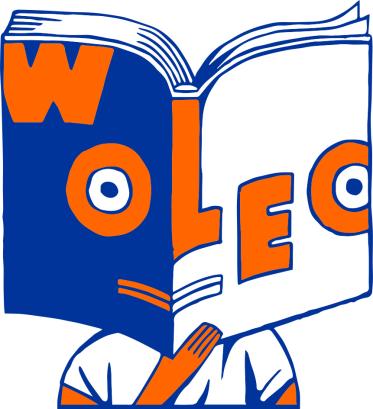
(English version below)
CLIC nodigt jullie graag uit voor de eerstvolgende WOLEC-sessie die plaatsvindt op donderdag 17 april van 12:00 tot ten laatste 13:30 in 5C.03. Spreker Prof. Delphine Munos (Universiteit van Luik) zal een lezing geven met als titel: “From Literal Metaphors to Self-translation: The City of Rome and the Italian language in the work of Jhumpa Lahiri”.
Delphine Munos is hoofddocent in Engelstalige postkoloniale literatuur aan de Universiteit van Luik, België, waar ze directeur is van de postkoloniale onderzoeksgroep CEREP. Ze is mederedacteur, samen met Bénédicte Ledent, van de boekenreeks Cross/Cultures (Brill), en auteur van After Melancholia: A Reappraisal of Second-Generation Diasporic Subjectivity in the Work of Jhumpa Lahiri (Brill/Rodopi, 2013). Ze was mederedacteur van Minor Genres in Postcolonial Literatures (Routledge, 2019) en Caryl Phillips’s Genealogies (Brill, 2023) en gastredacteur van themanummers voor South Asian Diaspora (2014; 2018), Journal of Postcolonial Writing (2018) en CR: The Centennial Review (2023). Delphine is gespecialiseerd in Engelstalige postkoloniale literatuur en Amerikaanse etnische literatuur, met een specifieke focus op ‘minor-to-minor’-interacties tussen verschillende postkoloniale gebieden en minderheidsgeschiedenissen.
De voertaal is het Engels. Een broodjeslunch wordt voorzien. We vragen u om uw aanwezigheid ten laatste tegen 10 april via deze link te bevestigen. Voor meer informatie over WOLEC, klik hier.
Hopelijk tot dan!
*****
CLIC is excited to invite you to the next WOLEC session, taking place on Thursday 17 April from 12:00 till 13:30 in room 5C.03. Prof. Delphine Munos (University of Liège) will give a lecture titled: “From Literal Metaphors to Self-translation: The City of Rome and the Italian language in the work of Jhumpa Lahiri”.
Delphine Munos is hoofddocent in Engelstalige postkoloniale literatuur aan de Universiteit van Luik, België, waar ze directeur is van de postkoloniale onderzoeksgroep CEREP. Ze is mederedacteur, samen met Bénédicte Ledent, van de boekenreeks Cross/Cultures (Brill), en auteur van After Melancholia: A Reappraisal of Second-Generation Diasporic Subjectivity in the Work of Jhumpa Lahiri (Brill/Rodopi, 2013). Ze was mederedacteur van Minor Genres in Postcolonial Literatures (Routledge, 2019) en Caryl Phillips’s Genealogies (Brill, 2023) en gastredacteur van themanummers voor South Asian Diaspora (2014; 2018), Journal of Postcolonial Writing (2018) en CR: The Centennial Review (2023). Delphine is gespecialiseerd in Engelstalige postkoloniale literatuur en Amerikaanse etnische literatuur, met een specifieke focus op ‘minor-to-minor’-interacties tussen verschillende postkoloniale gebieden en minderheidsgeschiedenissen.
The lecture will be held in English. A sandwich lunch will be provided. We ask you to confirm your presence via this link by 10 April. For more information about WOLEC, click here.
We hope to see you there!

Abstract
In the Introduction to Translating Myself and Others (2022), a book of essays discussing her recent experiences both as a translator from Italian into English and as a writer in Italian, a language with which she had “no familial, personal or professional connection”, Jhumpa Lahiri emphasizes the multiple ‘cultural translation’ dilemmas that she has encountered, first as a child of Bengali immigrants “speaking and living in English and Bengali” in the USA, then as a successful writer bearing a burden of ethnic representation.
In fact, prior to 2015, when she decided to write only in Italian, Lahiri’s English-language work was overwhelmingly framed by presuppositions of “biographical connection” (Sarah Brouillette) between her life as a child of Bengali immigrants and her Bengali American characters, with critics affixing labels such as ‘American’, ‘Indian’, and ‘postcolonial’, to her work and turning a blind eye to its literary merit. Ironically, while taking this earlier trend of scholarship to task for its overemphasis on binary oppositions between India and the USA and its fixation on identity politics, critics working within the field of translation studies have recently contended that the “logic of abstraction” at play in Lahiri’s Italian-language work was going hand in hand with a resolve to bypass “biographical readings of the multilingual condition” (Núria Codina Solà), which still evacuates the relationship between language, literariness, and the complexities of Lahiri’s second-generation positionality.
In my talk, rather than looking at Lahiri’s English-language work through the optics of cultural matters and subscribing to the assumption that her Italian-language texts can be read in isolation from any cultural frame, I will show that Lahiri’s recent decision to write only in Italian started giving more visibility to her reimagining of herself as a writer who has always been “linguistically orphaned”, torn as she was between English, her “dominant language” and Bengali, a “mother tongue” she’s never perfectly mastered. What is more, by tracing the metaphor of Rome throughout her English-language output, I will build bridges between Lahiri’s English and Italian works, suggesting that the city of Rome (and later the Italian language) mediate the ‘translation dilemmas’ of a minor subjectivity continuously travelling towards meaning.
